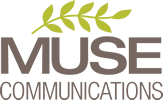
Storytime Blog
Our latest news and articles.
Tag
- Attorney At Work 3
- Best Lawyer Lists 1
- Canva 1
- D Magazine Best Lawyers in Dallas 1
- Dallas 1
- Gene Major 2
- Legal Marketing 2
- LinkedIn 3
- Media Relations 3
- Merger 1
- Newsletters 2
- Press Release 1
- Rocky Dhir 1
- SEO 1
- Social Media 6
- State Bar Advertising Review 2
- State Bar of Texas 1
- State Bar of Texas Podcast 1
- Texas Board of Legal Specialization 1
- Texas Disciplinary Rules of Professional Conduct 5
- Texas Lawyer 1
- Texas Young Lawyers Association 1
- Troutman 1
- Websites 1
- Winstead 1
- ad rules 1
- awards 1
- blogging 2
- content marketing 1
- distribution list 1
- e-mail marketing 1
- email marketing 2
- lawyer awards 1
- legal marketing 6
- personal networking 3
- referrals 1
- white papers 1

16 Impactful Ideas for Engaging Law Firm Newsletter Content
Cure your writers’ block with these impactful content suggestions for your next newsletter.

Making Sure Your Law Firm Website Complies with State Bar of Texas Ad Rules
The latest updates to the State Bar of Texas’ advertising rules governing lawyer and law firm websites.

What to Publish on Your LinkedIn Page: A Guide for Small and Mid-Size Law Firms
While large firms — with their hundreds of lawyers and hefty marketing departments — can churn out news on the regular, small and mid-size firms often struggle with keeping their LinkedIn pages populated.

How to Recycle Your Best Content to Market Your Law Practice
Many lawyers spend countless hours preparing CLE presentations, writing informative blog posts, giving media interviews, and generally creating informative content of interest to their clients, prospective clients, and referral sources. The smartest lawyers find ways to get multiple uses out of those efforts by recycling their content in a variety of other formats. Recycling your best content – particularly “evergreen” content that’s not tied to a breaking news story, such as a court ruling or current event – can save you time and effort and give you valuable material that you can use for months or even years.

LinkedIn for Lawyers Who Don’t Like LinkedIn
In kickoff meetings with new clients, most of them make a similar confession: “Just so you know,” they say, “I’m not good on LinkedIn.” And when I check out their LinkedIn profiles, I discover that they are right.

Is This Award Real? 5 Clues to Sniff Out Scammers
A significant portion of a legal marketer’s job these days is spent navigating lawyer awards. When a lawyer receives a noteworthy award, we want to publicize it, typically with an announcement on the firm’s website, on their social media and possibly via a dedicated email announcement.

Texas Lawyer Names Muse Communications Tops in 3 Cities
Once again, Muse Communications was named one of Texas’ best legal public relations firms in an annual survey of the readers of Texas Lawyer. This year, not only did we earn a spot in Texas Lawyer’s Hall of Fame (for the third year in a row), but we also earned recognition in three cities: Dallas, Austin, and Houston.

What to Do if You Got a ‘Best Lawyers’ Notification
As I write this, we’re smack in the middle of what my colleagues and I call Lawyer Awards Season. Between April and November, there appears to be a new notification or embargo lift on a lawyer award every few weeks. If you recently received a notification from one of the reputable “best lawyers” lists, you may be wondering how to get the most mileage out of the recognition. If you didn’t get one of those notifications, you might want to know how to improve your chances of making such a list.

4 Reasons You Should Still Issue a Press Release
In the era of online content marketing, the press release seems as quaint and outdated as the fax machine. But a well-written, concise, timely press release remains one of the most potent vehicles for getting your law firm’s story in front of important audiences.

Looking to Juice Your Legal Marketing? First, Take These Two Steps
With our pandemic quarantine nearing an end (fingers crossed), more and more law firms are looking to step back in to the marketing game in anticipation of increased legal demand.
For those who get their business from referrals (as opposed to advertising and search engine results), I always recommend taking these two steps to figure out the best and smartest way to spend their limited marketing resources.

How to Put Your Best Ambassadors to Work for Your Law Firm’s Social Media Presence
Sharing your law firm’s news and substantive legal posts via social media is one of the most potent (and absolutely free) ways to amplify firm accomplishments and your lawyers’ valuable thought leadership.

Use Email to Nurture Your Referral Network
When solo and small firm lawyers ask how they can gin up their business development, I start by asking them where they already get their business. That answer is almost always “referrals.” It could be referrals from other lawyers and professional colleagues, clients and former clients, or any number of sources. So then I ask, “What are you doing to stay on your referral network’s radar?”

Podcast: Legal Marketing that Complies with State Bar of Texas Ad Rules
Muse’s own Amy Boardman Hunt and Gene Major, the State Bar of Texas Director of Advertising Review, were guests on the State Bar of Texas Podcast discussing with host Rocky Dhir how lawyers can market themselves in ways that comply with the State Bar of Texas’ Disciplinary Rules of Professional Conduct, which govern lawyer advertising in Texas.

A Quick Guide to Clean Email Distribution Lists
Do you ever get those emails with your first name in the subject line? “Hey Christina – Your Valentine’s Day Outfit Inspiration Is Here!” or “It’s time to start cooking, Christina!” (Side note: Do people really have Valentine’s Day outfits?) Well, that didn’t happen by accident. You receive emails addressed specifically to you because some way, somehow, somebody either entered your information into a specific field in an email database, or you signed up yourself. State Bar Top 10 blog postAnd if the information is inaccurate? Let’s just say you might be sending an email that starts with “Dear, The Honorable.”

Successfully Navigating Media in Law Firm Mergers
When solo and small firm lawyers ask how they can gin up their business development, I start by asking them where they already get their business. That answer is almost always “referrals.” It could be referrals from other lawyers and professional colleagues, clients and former clients, or any number of sources. So then I ask, “What are you doing to stay on your referral network’s radar?”

Deciphering the State Bar of Texas Advertising Rules with Gene Major
For more than 20 years, the State Bar of Texas advertising rules have governed lawyer advertising, including print and electronic ads, websites, brochures and practically any communication about a lawyer’s legal services that reaches the public. Despite two decades of regulation, Texas lawyers and law firms still have questions about exactly what is and isn’t allowed, and the potential impact for violations.

Making Sure Your Website is Compliant with State Bar of Texas Ad Rules
Making sure your website is compliant with the State Bar of Texas ad rules is just one of the many responsibilities for Texas lawyers and law firms who are launching a new site or updating an existing site.
The Texas Disciplinary Rules of Professional Conduct include many regulations that cover exactly what can and cannot be included on legal websites. Unfortunately, many sites are launched in a rush with no consideration for the implications of having a noncompliant site.

Planning Key to Handling the Death of a High-Profile Attorney
Making sure you’re prepared on all fronts for the death of a law firm founder or influential firm attorney is something that no one looks forward to, but failing to take a few necessary steps beforehand is a recipe for potential confusion and consternation among the attorneys at your firm, the firm’s clients, and, importantly, the lawyer’s family.

The Repeat Ethical Offenders of Social Media
Social media is a great tool for keeping up with the news, friends and family, sometimes in the blink of an eye.
Despite the many benefits of this hyper connectivity, however, social media can also cause problems in the business world for those whose viewpoints may conflict with their clients, employees or colleagues. While there are a variety of these social media ethics violators, there are three types that all lawyers should know about and avoid emulating.
